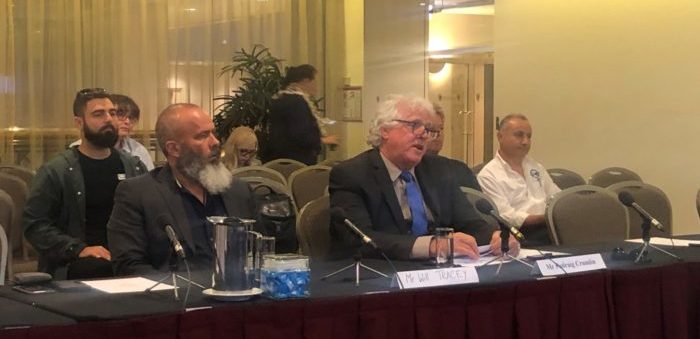The Maritime Union of Australia warns that Australia’s shipping industry is in crisis, as the nations economic, environmental, and national security is at risk. To that point, MUA suggests that government reform could find a solution to this issue and deliver a multi-billion dollar benefit for the economy.
Specifically, MUA presented a detailed proposal to the Senate Rural and Regional Affairs and Transport References Committee inquiry into the Australian shipping industry in Melbourne, including recommendations that the Australian Government:
- provide tax incentives to support investment in ships, ship-related infrastructure, and local seafarers;
- reform the seafarer visa system to improve maritime security and support skills investment;
- reform legislation and regulations governing coastal trading;
- create a national strategic fleet to guarantee fuel security and enhance the nation’s economic security;
- develop a strategic approach to maritime workforce development;
- introduce better ship safety and pollution reduction measures to protect Australia’s coastlines, tourism industry and oceans.
Paddy Crumlin, MUA national secretary, commented that since 2013 Australia has lost more than half of its remaining coastal reef. The nation has been left with 12 large trading vessels to carry our growing coastal cargoes.
With the right political leadership and policy settings, this dramatic decline can be arrested and our shipping industry can be rebuilt.
… Crumlin highlighted.
He continued stating that domestic vessels are replaced by foreign ships that don’t pay their taxes in Australia, but elsewhere; Also, the foreign ships won’t deploy Australian seafarers, whereas they don’t support local businesses and maintenance.
In light of the crisis, Crumlin proposed its suggestions to expand the nation’s expertise, including:
- offshore oil and gas exploration, construction, production and transportation;
- opportunities in the emerging offshore wind farm sector;
- defense shipbuilding arising from the Government’s existing $80 billion investment in the sector;
- civilian shipbuilding, particularly aluminum hulled ships;
- expedition cruise shipping and other forms of marine tourism;
- marine and oceanographic research.
As an island nation, we depend on maritime skills to operate our ports, our regulatory and safety agencies, our freight and logistics sectors, tourism and offshore oil and gas industries.
He concluded stating that before any of the steps above are accomplished, the nation needs clear vision and leadership from the government.






























































